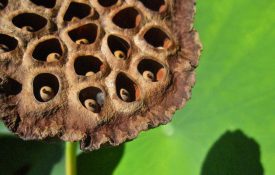-
Wealthy Selfies: How Being Rich Increases Narcissism
TIME: The rich really are different — and, apparently more self-absorbed, according to the latest research. That goes against the conventional wisdom that the more people have, the more they appreciate their obligations to give back to others. Recent studies show, for example, that wealthier people are more likely to cut people off in traffic and to behave unethically in simulated business and charity scenarios. Earlier this year, statistics on charitable giving revealed that while the wealthy donate about 1.3% of their income to charity, the poorest actually give more than twice as much as a proportion of their earnings — 3.2%.
-
Poverty significantly saps our mental abilities say researchers
BBC: Being poor can sap a person's mental resources, research published in the journal Science suggests. The work, by an international team, demonstrates how poverty takes its toll on cognitive function, leaving less mental capacity for other tasks. The evidence comes from two studies carried out in India and the US. Previous data had shown a link between poverty and bad decision-making, but the root causes of this correlation were unclear. The US, British and Canadian team tried to shed light on this chicken-and-egg puzzle by isolating the financial factor from others that might interfere with the results.
-
Math Anxiety Gets Fresh Look, Different Twist in New Research
Education Week: Considerable research suggests that girls are more anxious about math than boys, but a new study dives deeper to distinguish the general anxiety young people report about the subject from what they may be feeling in math class or at test time. It turns out the latter, "real-time" anxiety is about the same for boys and girls, the study finds. Math anxiety among females has long been of concern because, as the new research points out, prior studies have shown that it "negatively predicts" course enrollment, career choices, and lifelong learning in math fields. This is also connected to the worrisome underrepresentation of females in STEM fields.
-

Fear of Holes May Stem From Evolutionary Survival Response
For those with trypophobia, the sight of clusters of holes in various formations can cause intensely unpleasant visceral reactions.
-
Consolidated Standards for Reporting Trials (CONSORT)
Get involved in the development of a new reporting guideline for social and psychological interventions! An international initiative of researchers, journal editors, and stakeholders in intervention studies is working with the Consolidated Standards for Reporting Trials (CONSORT) Group to develop CONSORT-SPI: an official Extension for Social and Psychological Interventions. We are currently looking for participants for an upcoming Delphi process (starting mid-September 2013) to generate possible reporting standards for the guideline. Stakeholders involved in researching, publishing, funding, commissioning, or providing these interventions are invited to contact us to participate.
-
Sports Fans Tend To Eat More Saturated Fat, Sugar After A Big Loss
The Huffington Post: A tub of ice cream doesn't just help numb the pain after a bad break-up -- it also seems to be what we turn to after our favorite team loses the big game, according to a new study. Researchers from the INSEAD Business School found that fans of a losing NFL team tend to eat more saturated fat and sugar the Monday after the game, compared with fans of the winning team. For the study, published in the journal Psychological Science, researchers looked at data on food consumption in more than two dozen cities. They examined food consumption habits on typical Mondays, and the Mondays after NFL games (for those cities with NFL teams) that took place over the weekends.

